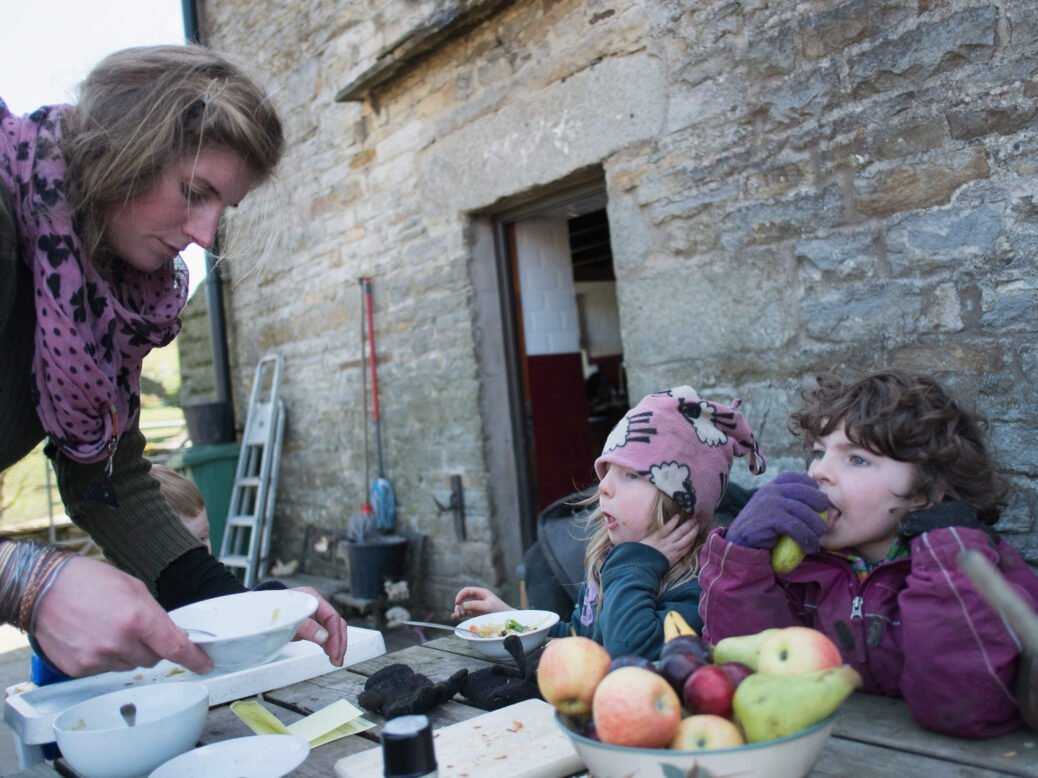
The recent Labour policy review symposium outlined a new and compelling narrative for family policy. Family policy is currently a hodgepodge of issues – it means very different things to different people and its preoccupations change in relation to current concerns, pressures and media attention. For the coalition government, and to some extent the Labour Party, current family policy can seem to be all about childcare. In earlier times, it has focused on maternity rights or parenting. Quite often, it becomes equated with a popular, media friendly issue such as the current cross-party concerns about the commercialisation and sexualisation of childhood.
These are undoubtedly important issues but focusing so narrowly has meant policymakers have failed to address what is often the core concern of most families. This is a simple but absolutely vital thing – their relationships with one another.
If Labour forms the next government in 2015, it will be governing a stressed and anxious population. The impact of six years of falling living standards will become more evident. There are already signs that we are going to see a sharp increase in divorce and separation as we move out of the worst of the economic decline. Having struggled unhappily through the tough years, couples wait the recession out and then, when circumstances improve, separate. The OECD figures on UK childrens’ wellbeing, which had improved, will, I suspect, begin to fall again as the delayed impact of the recession hits the next generation.
But whilst it would be foolish not to recognise the impact on families of economic stress, it is also now time to acknowledge that there are not purely economic answers to these problems – a new perspective on family and social life is needed if we are to make radical improvements in our wellbeing.
The quality of relationships within a family is the single most important factor in whether a family thrives or not. Of course financial worries cannot be overlooked, but however good the material circumstances of families, if the relationships are poor, things go awry for both adults and their children. They also go awry for the state; the cost of family breakdown and poor relationships is an enormous drain on the public purse, impacting on everything from adult and child mental health to heart disease and childhood obesity. The Relationships Foundation has calculated that the cost of family breakdown amounts to as much as £46bn each year.
The last Labour government largely treated social problems associated with poverty as if they only arose because of economic disadvantage and social exclusion; the priority was to increase the pound in the pocket of the poor. With fewer pounds to distribute, policymakers, such as Jon Cruddas, are thinking more broadly; addressing the complex inter-relationship between poverty and social problems. There is a new narrative being developed, which calls for policies that include a relational approach to social policy and that recognise that poverty and social disadvantage are not only linked to economic difficulties but also to emotional health.
Emotional health and the strength of people’s relationships, whether these be intimate or familial or within communities is closely correlated. If governments fail to create the conditions that promote nurturing families, the capacity for healthy interpersonal relationships is harmed. This has political as well as personal consequences because good relationships are fundamental to the development of communities based on reciprocity, tolerance and cooperation.
Family policy should now focus on supporting and strengthening the quality of family relationships, increasing family resilience and the capacity to adapt to changing circumstances. Central to this must be to offer support for adult relationships, so that we can now build a vision of marriage and adult partnering that is democratic and inclusive. Families need to be able to access this support whatever their make-up or size.
It is no longer credible in the 21st century to think that a good society can be achieved without thinking about how people psychologically flourish and thrive – we now have enough evidence to understand how the emotional health of a family is intrinsically linked to children’s long-term outcomes. And we know that a secure, loving family environment is crucial for the psychological health which enables both children and adults to make best use of the opportunities that are presented to them.
Family policy must aim to build emotional health and resilience in families and this is a long-term project. Real outcomes cannot be achieved within the five year electoral cycle, which is why supporting strong family relationships needs to be a cross-party agenda with a focus on early intervention at the heart of it. To make this fundamental shift in thinking, we need to start by putting family policy right up the political agenda. One way to do this would be to put a Minister for Families into the cabinet to coordinate policy and promote change.
Susanna Abse is a couple psychotherapist and CEO of the Tavistock Centre for Couple Relationships





